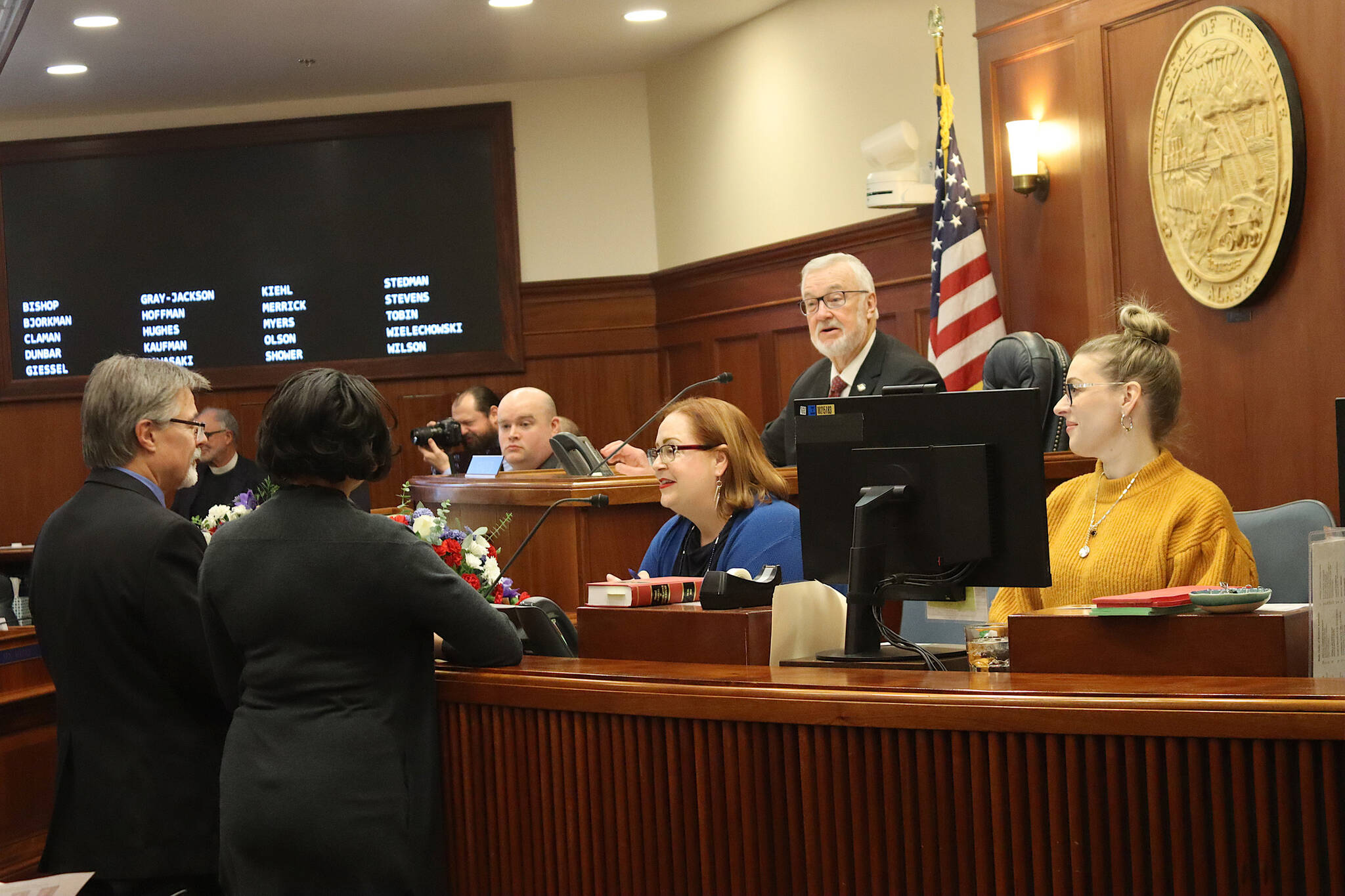KENAI — State funding for education was the top topic among Alaska lawmakers as they gaveled in Tuesday for the first day of their second regular session.
A 20-20 vote by the Alaska House of Representatives killed early efforts to overturn a gubernatorial veto of one-time education funds approved by state lawmakers last year and a per-student dollar amount increase proposed by the House majority was well under the amount considered last year.
Legislators approved $175 million in extra education funding last year after school districts from around the state called on the state to increase and inflation-proof the amount of money district receive per student, also called the base student allocation. The request came as school districts project multimillion-dollar deficits for the upcoming fiscal year.
After the Legislature adjourned, Dunleavy vetoed half of the amount, or about $87.5 million. Advocates for greater education funding have called on lawmakers to overturn that veto.
Per Article II Section 16 of the Alaska Constitution, lawmakers have five days to reconsider Dunleavy’s veto of one-time funds after coming back for their second regular session. Overturning the veto would require a three-fourths vote by lawmakers in each chamber.
Reps. Ben Carpenter, R-Nikiski, Justin Ruffridge, R-Soldotna, and Sarah Vance, R-Homer, all voted against the motion to hold a joint session with state senators, during which a vote to overturn Dunleavy’s veto would be held. The tie vote meant the motion failed.
Carpenter said Tuesday that the vote against holding a joint work session with senators reflects the House majority’s commitment to implementing a long-term funding fix, as opposed to revisiting the one-time funds vetoed by Dunleavy.
House majority members, Carpenter said, are focusing their attention on Senate Bill 140, which he said is going to be the vehicle through which they try to implement a long-term funding solution for schools.
That bill addresses internet access for schools and, currently, would increase the base student allocation by $680, from $5,960 to $6,640. Alaska House Majority Leader Dan Saddler, R-Eagle River, though, said during a Tuesday press conference that a $300 increase would be their cohort’s “starting point.” S.B. 140 was scheduled to be heard in the House Rules Committee on Wednesday, Jan. 17 at 4 p.m.
Carpenter said it would cost “significantly more money” for lawmakers to both overturn the governor’s veto and approve a BSA increase for the upcoming fiscal year.
“It is not something within our financial ability to do,” he said.
Although Alaska’s Constitution mandates that the Alaska Legislature establish and maintain a system of public schools in Alaska, Carpenter said, the Constitution does not say that state lawmakers must fund 100% of that system. The state, he said, is a partner in education.
Carpenter further pointed to out-migration of students from public schools around the state, which he said contributes to the funding problems districts have. Whether that trend is a function of general state population trends or of issues that people have with their local school district, Carpenter said all school districts should be asked about what they’re doing to reverse that trend.
“All of those things impact how much the Kenai Peninsula Borough School District gets through the BSA formula,” he said.
As S.B. 140 makes its way through the Legislature, Carpenter said he’ll be looking for school district accountability measures to be passed alongside any increase to the BSA amount. Specifically, he wants to see correspondence students funded at the same level that brick-and-mortar students are and for a mechanism through which parents can apply for and assume responsibility for a charter school.
Ruffridge said via email Tuesday that education is a “high priority” for his office this session and that he will focus on long-term solutions.
“I will continue to advocate for a well-rounded approach to this issue and overriding the veto of one-time funding would not accomplish my goal of providing long term solutions,” Ruffridge said. “My hope is to move forward this session by addressing a long-term solution.”
Proceedings of the Alaska Legislature can be streamed at akleg.gov.
Reach reporter Ashlyn O’Hara at ashlyn.ohara@peninsulaclarion.com.


